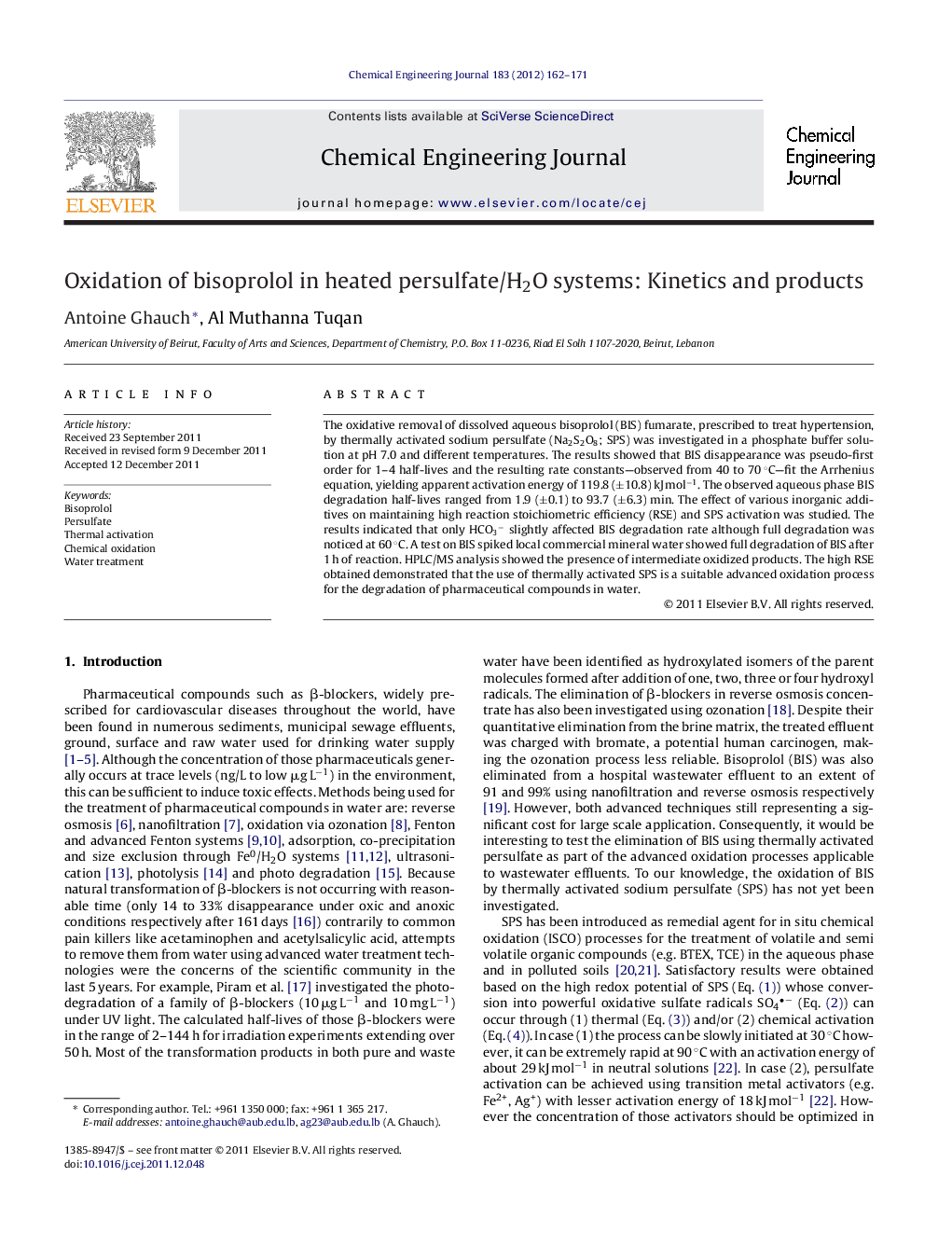| کد مقاله | کد نشریه | سال انتشار | مقاله انگلیسی | نسخه تمام متن |
|---|---|---|---|---|
| 150295 | 456447 | 2012 | 10 صفحه PDF | دانلود رایگان |

The oxidative removal of dissolved aqueous bisoprolol (BIS) fumarate, prescribed to treat hypertension, by thermally activated sodium persulfate (Na2S2O8; SPS) was investigated in a phosphate buffer solution at pH 7.0 and different temperatures. The results showed that BIS disappearance was pseudo-first order for 1–4 half-lives and the resulting rate constants—observed from 40 to 70 °C—fit the Arrhenius equation, yielding apparent activation energy of 119.8 (±10.8) kJ mol−1. The observed aqueous phase BIS degradation half-lives ranged from 1.9 (±0.1) to 93.7 (±6.3) min. The effect of various inorganic additives on maintaining high reaction stoichiometric efficiency (RSE) and SPS activation was studied. The results indicated that only HCO3− slightly affected BIS degradation rate although full degradation was noticed at 60 °C. A test on BIS spiked local commercial mineral water showed full degradation of BIS after 1 h of reaction. HPLC/MS analysis showed the presence of intermediate oxidized products. The high RSE obtained demonstrated that the use of thermally activated SPS is a suitable advanced oxidation process for the degradation of pharmaceutical compounds in water.
► Thermally activated persulfate is extremely reactive toward bisoprolol.
► Hydroxyl radicals and sulfate radicals as well are mainly responsible of the mineralization of bisopropol.
► Dissolved hydrogen carbonates slightly affect the observed degradation rate.
Journal: Chemical Engineering Journal - Volume 183, 15 February 2012, Pages 162–171